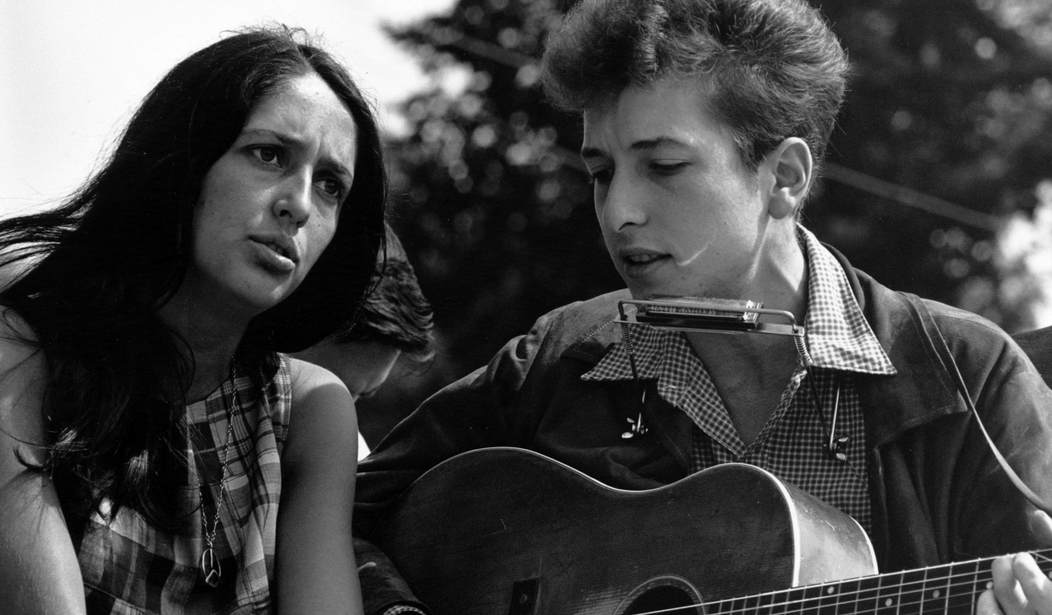In what should have been called “100 Singers We Really Like,” geriatric rocker magazine Rolling Stone has produced a terrible list of the “100 Greatest Singers of All Time.”
If you want to put together a list of 100 rock/country/R&B/soul/blues singers, RS’s list isn’t quite terrible — but why rank them? What makes Buddy Holly (#48) exactly one better than Donny Hathaway (#49)? (Also, he isn’t.) The whole notion is ludicrous.
Numbers aside, RS was wise not to limit themselves to just rock & R&B. Early blues legend Howlin Wolf (#31) made the cut, as well as later greats Bobby Bland (#44), Muddy Waters (#53), John Lee Hooker (#81), and BB King (#96). There’s a little reggae on there, too, with Bob Marley (#19), and Toots Hibbert (#71). The list veers into country with the inclusion of Johnny Cash (#21), Hank Williams (#27), George Jones (#33), Pasty Cline (#46), Jerry Lee Lewis (crossover, really, at #67), Dolly Parton (#73), and Willie Nelson (#88).
I was glad to see Axl Rose (#64) make the cut. His type of music isn’t my type of music, but the man has amazing range and control — a great singer by any measure, whether or not Guns & Roses is for you. Whitney Houston (#34) had equally amazing range and control, but zero restraint. Her “great” singing too often comes across as mere vocal exercises. Same goes for Mariah Carey (#79). Then there’s Bjork (#60), who seems to be on there mostly for GenX indy cred, and Kurt Cobain (#45) just didn’t live long enough or produce enough to earn that kind of distinction. Journey’s Steve Perry (#76) doesn’t belong on any list, unless it’s “100 Things So Treacly They Make Our Teeth Itch, and 99 of Them Are Steve Perry.”
I’d question the inclusion of Bob Dylan (#7), Janis Joplin (#28), Steve Winwood (#33), Bonnie Raitt (#50), Iggy Pop (#75), Mary J. Blige (#100), and a few others. Don’t get me wrong: They’re all excellent interpreters of their various forms, but none strike me as worthy of inclusion on a list so exclusive. Especially when you consider who got left out: Absolutely everyone from the entire jazz/swing era.
Let’s start with my Holy Trinity of Louis Armstrong/Frank Sinatra/Ella Fitzgerald. Armstrong did more than any other early popular music artist — as a singer and as an instrumentalist — to define the American popular song. Sinatra was the first to realize that the human voice could be “played” like an improvisational jazz instrument. He trained his voice to work like the great jazz players he listened to in New York clubs he’d sneak off to as a teen. Not only that, but pop vocals during the ’30s, at least from white artists, tended to be pretty staid. Sinatra imbued his performances with a Mediterranean flair for drama and heartbreak. And Ella? I can’t improve upon what Will Friedwald wrote:
Unlike any other singer you could name, Fitzgerald has the most amazing asset in the very sound of her voice: it’s easily one of the most beautiful and sonically perfect sounds known to man. Even if she couldn’t do anything with it, the instrument that Fitzgerald starts with is dulcet and pure and breathtakingly beautiful. As Henry Pleasants has observed, she has a wider range than most opera singers, and many of the latter, including Dietrich Fischer-Dieskau, are among her biggest fans. And the intonation that goes with the voice is, to put it conservatively, God-like. Fitzgerald simply exists in tune, and she hits every note that there is without the slightest trace of effort. Other singers tend to sound like they’re trying to reach up to a note – Fitzgerald always sounds like she’s already there.
Going a little bit further, Mel Tormé is the closest thing to a white, male, Jewish version of Ella the world will ever hear, and almost certainly deserves a perch higher than, say, folksily-pleasant-but-rarely-breathtaking James Taylor (#74).
How does anyone produce a list of mostly-American singers of popular music, and leave out literally everyone who sang some of the most distinctly American music of all time?
But you have to get almost all the way to the bottom of Rolling Stone’s selection to find the hidden gem in this story:

Joe ****er? Is this the same Joe ****er who sang “With A Little **** From My Friends,” and “You Are So **** To Me,” and of course, “****ing Alright” with such sweet soulfulness? That Joe ****er?
Folks on Twitter of course had a field day:
I thought we’d have flying cars by now but instead we’re acting like Joe Cocker’s name is inappropriate
— Savage🇺🇸 (@SavageAphrodite) October 21, 2019
When you turn a terrorist into a heartthrob, but you’re so woke you can’t put the “cock” in Joe Cocker, you’re just an insufferable dick, @RollingStone. pic.twitter.com/UTkHhZamt0
— Allan Bourdius (@UnrealAllan) October 21, 2019
They Cockblocked Joe Cocker!! A guys name is offensive now!! 😂😂FFS 🙄 pic.twitter.com/EASyFLy7Fg
— Ernie Luna 📸🎤🕹 (@FlawedExcuses) October 21, 2019
Left and Right, young and old, all Americans agree on the ridiculousness of Rolling Stone’s self-censorship.
And finally:
Yeah, I fell for it — because I wanted to. Talking about the music we love (and hate) is part of what makes us human. Trying to produce a ranked list of the 100 best artists of anything is what makes a once-hip music magazine pretend it still has any relevance.












Join the conversation as a VIP Member